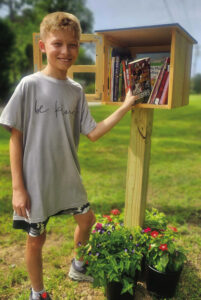Wine has its own special language
By By Stan Torgeson / wine columnist
Dec. 18, 2002
Did you ever listen to one doctor talking to another? I've got two of them in my family and when they start trade talk they leave me far behind.
I don't have the slightest idea what they're saying. My Latin leaves much to be desired. Put it this way: It leaves everything to be desired.
The same is true of experienced wine collectors. Wine has a language all its own and it is likely those of you who buy an occasional bottle or two at your favorite package store could listen to true collectors talk for an hour and think they were talking anything except simple English. Let's see if we can help.
Acidity: This is important in good wines. Acidity gives crispness to the wine and produces the bright fresh flavor highly valued. Lack of acidity makes a wine soft, usually with a background sweetness. Inexpensive wines normally lack good acidity.
Apellation: This is the defined area where the grapes used to produce the wine are grown. Napa Valley, for instance, is an American appellation. Sonoma County is a different apellation.
Body: Refers to the weight or thickness of the wine in your mouth, light, medium or full bodied. To give you an example think of the difference in taste between skim milk, whole milk and half and half.
Finish: The aftertaste of wine. Some wines when swallowed are instantly gone. Your mouth retains none of the flavor. But really good wines are those that you can still taste long after the wine itself is consumed. When wine drinkers say they can't get a particular flavor out of their mouth they are referring to the finish. Longer is better.
Fruity: Better wines normally have pronounced fruit flavors. Those flavors can range from cherries to raspberries to lemon or even butterscotch. Some people use the word to describe a sweet wine but that is incorrect. Sweet wines taste like sugar or syrup but they are not truly fruity in the wine sense.
Malolactic fermentation: This is a hard one to describe. Let's put it this way. It is a natural chemical process that takes place after the primary fermentation. It is what happens to make the wine what it finally becomes, creating acidity and adding complex flavors.
Reserve: Generally speaking, a word with no real meaning, usually designed to make the consumer think the wine is something special in order to encourage its purchase. A few American wineries take it seriously and maintain their "Reserve" wines are the best of that year's grape crop and have been held back for further aging.
Thus, they say, it costs more to produce, tastes better and should command a higher price. True, occasionally, but in the main it is a buzz word designed to create sales. Some countries do legislate its use. In Italy, for example, a Reserva must be in the cask at least three years before it can be bottled with that term on the label. There is no such rule with American wine.
Tannin: This is the cottony taste in wine that almost makes your tongue stick to the roof of your mouth. It comes from the skins and stems of grapes as well as the oak barrels in which some wines are aged. It normally masks the flavors but with time it goes away and the best features of the wine move front and center.
That time can take years which is why older wines have a charm all their own. Young, tannic wines, can sometimes overcome the tannins by being opened several hours before being consumed and letting the oxygen in the air enhance the flavor. Never be afraid to open at 5 p.m. a young red wine you plan to serve at eight.
Terroir: French winemakers believe the flavor of a wine is directly related to the soil and climate at its place of origin. That, they think, is why wines from certain wineries have a distinctively similar flavor year after year.
In America, the best known example is the vineyards of Joseph Heitz which produce wines with a slight eucalyptus flavor. I once attended a vertical tasting of Heitz wines covering 40 different vintages and it was amazing the similarity of the 1947s with the 1957s, the 1967s and so on.
Variety: The specific type of grape used to make the wine. If comprised purely or predominately of one variety it is called a "varietal" wine. Chardonnay, cabernet, merlot, zinfandel, all are varietals.
Vintage: The year in which the grapes were harvested to make the wine in the bottle. A 1999 vintage means the grapes used were grown in that year. Vintage quality varies from year to year because of weather conditions. Some years produce great grapes which make great wines. Some do not.
Some winemakers produce great wines in bad years. Some produce bad wines in good years. It's like cooking. Give your momma and your wife the same ingredients and two entirely different cakes will come out of the oven.
It would be wise, however, to praise both.










